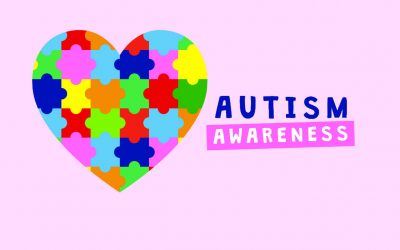Autism First-Hand: An Expert Interview With Temple Grandin, PhD
SAR Editor’s note: Medscape is a mainstream medical website publication that targets both physicians and “patients”, but on separate web pages. This interview comes from the doctors’ side and carries footnotes, which normally do not appear in lay publications. Footnotes reference the source of statements made and are not something one plays with a shoehorn. But you knew that. -LS
Medscape Editor’s Note: As a child, Temple Grandin, PhD, like many
children with autism, couldn’t speak and raged for no identifiable
reason. Yet she grew up to earn a PhD in animal science from the
University of Illinois; pioneer humane ways of treating cattle using
knowledge gleaned from her disorder; and write on the sensory and
cognitive experience of being autistic. Medscape’s Randall White, MD,
interviewed Dr. Grandin, Associate Professor of Animal Science, Colorado
State University, Fort Collins, on her insights into autism spectrum
disorder.
Medscape: In one of your essays you wrote, “Teachers need to use
fixations to motivate instead of trying to stamp them out.”[1] What
would that achieve for people with autism? Dr. Temple Grandin: Let’s
say that a child loves trains — that’s a very common fixation. Well,
read a book about trains, do math problems with trains, read about the
history of the railroad. In other words, if a kid loves trains, you can
somehow drag a train into just about every subject in school to get him
motivated to study it. Fixations are tremendous motivators. Look at
someone like Mme. Curie, who discovered radium; she certainly was
fixated on what she was doing. A little bit of fixation gets things
done.
Medscape: You also wrote, “I screamed because it was the only way
I could communicate.”[1] Describe that experience from childhood.
Dr. Grandin: That was when I was a little kid. I remember not
wanting to wear a hat. So I screamed and threw it on the floor of the
car, and mother said, “Put it back on.” So I screamed and chucked it out
the window.
Not being able to communicate is a tremendous frustration. If a
child has a behavior problem, especially a nonverbal child, you’ve got
to figure out what’s causing it. Is it frustration because they can’t
communicate? Another problem might be sensory sensitivity, something
that’s often ignored. Every time you take the kid into Wal-Mart, he’s
screaming. Well, the reason for that is that the fluorescent lights are
flickering and driving him crazy, the noise in there hurts his ears, the
smells overpower his nose. Wal-Mart is like being inside the speaker at
a rock and roll concert.
Then you’ve got to figure out, when you have a nonverbal child who
all of a sudden has a behavior problem, whether he has a medical
problem, like acid reflux, that’s not diagnosed. Other reasons they
might scream would be to get out of doing something or to get attention.
Medscape: Regarding your own history with communication problems,
you wrote, “The speech therapist was the most important professional in
my life.”[1] Why was that so? Dr. Grandin: Because she got me talking.
She started working on me when I was 2 and a half years old, and then
when I was 3, my mother hired a nanny who spent hours doing lots of
little kids’ turn-taking games. I can remember, after lunch, I had a
rest period when I could revert to autism, and I would pick the fuzz off
the rug and eat it, and dribble sand through my hands — I can remember
just getting hypnotized doing this. If I had been allowed to do that all
day, I wouldn’t be here now.
I’m a big believer in lots of early intervention with little kids.
We’ve got to get them talking if possible and get them interacting with
people. I think the social interaction of going to elementary school is
extremely important. But then when you get into being a teenager, in the
real mild Asperger’s, there are some who just need to be removed from
the social pressure cooker. You know, I think sometimes we go overboard
on social conformity, especially with teenagers.
Medscape: A recent story in The New York Times examined the
conflicts that occur between some people with autism, some of whom
protest any treatment, and their parents.[2] Dr. Grandin: I’ve read
those things, the whole conflict about ABA — applied behavior analysis.
Those techniques are mainly for very little children, for 2 to 5 year
olds, to get language started. They’re not for high-functioning 8 and 9
year olds. And most people in those protests are the more mild
Asperger’s types. We need to be working on developing the talents those
people have so they can have jobs and support themselves. I really
believe there’s a certain portion of high-functioning Asperger’s
patients who need to be going to the university and getting in with
their intellectual peers, and just skipping the whole teenage mess
because that’s not a life skill you need anyway. And it was the worst
part of my life, absolutely the worst. Interacting with teenagers is not
part of my career! Medscape: Would you have achieved what you have if
you were not autistic? Dr. Grandin: I don’t think so, because there was
a motivation that I had that a nonautistic person doesn’t have. And I
had a visualization skill that goes beyond what most people have. When I
designed a piece of equipment, I could actually test-run it in my head
like these virtual-reality computer programs. And I didn’t even know
that other people couldn’t do this. That’s the positive side of autism.
Now obviously, if you have a child who’s still nonverbal and not toilet
trained, that’s the negative side of autism. It’s a continuum, going all
the way from Einstein down to somebody who remains nonverbal and not
toilet trained.
Medscape: I want to talk with you about the relationship of
doctors with people with autism. Have you been under the care of a
physician, and if so, how would you rate the care you received? Dr.
Grandin: Well, when I was a little kid, I had a psychiatrist, and of
course he was Freudian trained. He wanted to find my psychic injury,
which we now know is totally wrong. And I think he helped my mother more
than he helped me. He really had very little effect on me.
The most important people in my life when I was older were Mr.
Carlock, my science teacher, and my aunt out on the ranch. She tolerated
my fixations rather than trying to get rid of them. Mr. Carlock directed
my fixations into studying science. Unfortunately, when I was in high
school, the professionally trained people like the psychologist wanted
to get rid of my cattle-chute fixation. Well, that cattle-chute fixation
ended up being the basis of my entire career, and half of the cattle in
this country, when they go to a meat plant, are handled in equipment I
designed. I think that’s a pretty good thing to do with an autistic
fixation. The professionals wanted to just take it away and stamp it
out.
Medscape: What should physicians and psychologists who treat
children and adults with autism keep in mind? Dr. Grandin: First of
all, we have to look at the functioning level, because what’s
appropriate for nonverbal patients is totally different from what’s
appropriate for very mild Asperger’s patients. I think they do need to
learn social skills, but I think we get to the point where there’s so
much emphasis on social skills, there’s no emphasis on career
development. I get social interaction through shared interests with
things at work, like talking about how to build something or solve a
problem in animal behavior. Now that’s really interesting to me; social
chit-chat’s not.
Yes, we have to learn social survival skills. One of the things I
had to learn is you can’t tell people off and tell them they’re stupid.
I got fired from a job for that early in my career.
Medscape: You have been on the same low dose of an antidepressant
for 20 years. Can you describe how you arrived at this and how it helps?
Dr. Grandin: As I got into my late 20s, anxiety and panic attacks got worse
and worse. It was like a constant state of stage fright. I read an
article in Psychology Today called “The promise of biological
psychiatry.” This was back in the late 70s, and it talked about
antidepressants for panic disorder and gave some doctors’ names. I
looked their names up in an Index Medicus book. Mr. Carlock had taught
me how to use those books.
I got this paper with a list of symptoms in it, and I said,
“That’s me!” They used 2 different drugs back then, imipramine and
phenelzine. Phenelzine has too many problems with the special diet, so I
talked my family practitioner into giving me imipramine, and within 3
days the anxiety subsided — it was like magic.
At autism meetings, I’ve had parent after parent come up to me and
say, “He did just great on a little bit of Prozac [fluoxetine], and they
gave him more, then he went ballistic and doesn’t sleep at night.” A lot
of people on the spectrum need a much lower dose of something like
Prozac than nonautistic people do.


